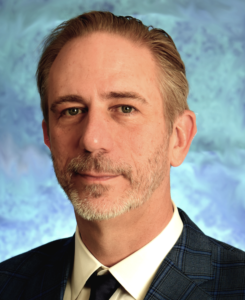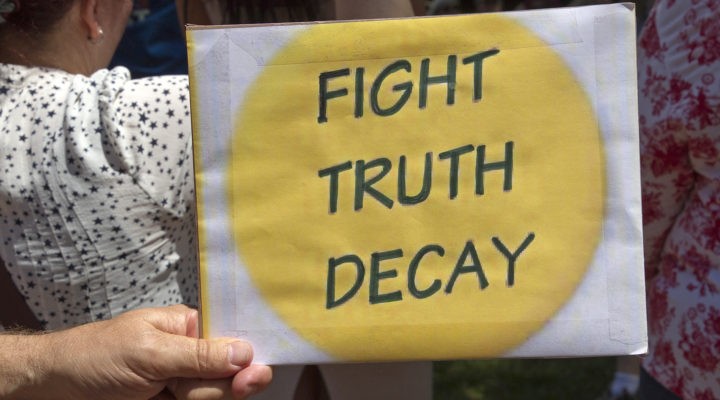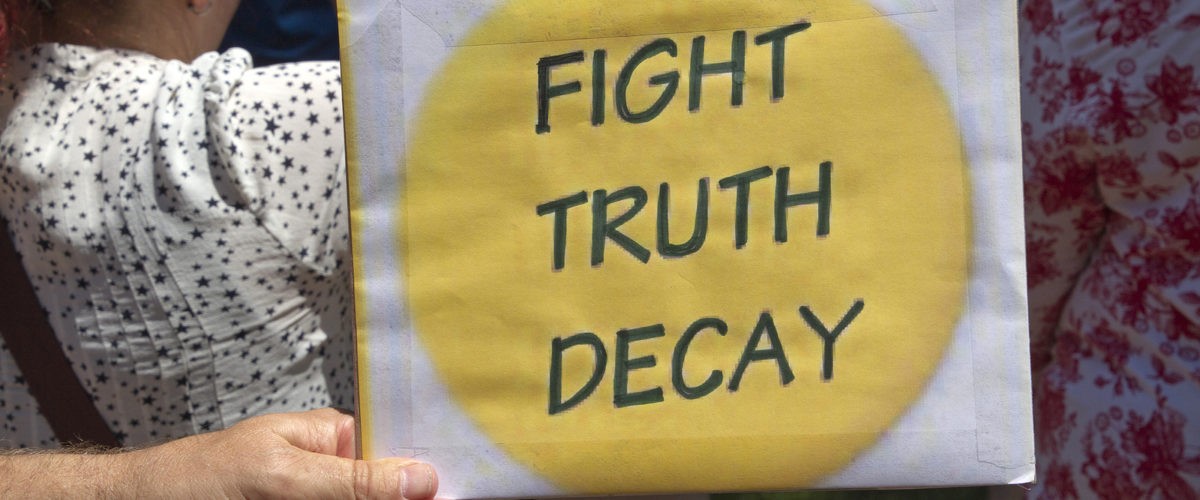“Let your yes be yes and your no be no. Anything more than comes from the evil one.” — Matthew 5:37
Six years ago, I took to the pages of Associated Baptist Press (now Baptist News Global), to puzzle over “the LGBT issue” in a series that ended up extending to almost 20 posts over many months. I decided I needed to wrestle with this question from the ground up, until I was through. I am eternally grateful to BNG for the space and the freedom to do such extended wrestling. It ended up being translated into a book, Changing Our Mind, that has gone on to have quite a career.

David Gushee
Beginning with this post, I want to embark on a similarly open-ended series of posts about “truth decay” in our country. (I borrow the phrase from former President Barack Obama.) I plan to address these themes: truth as an issue in Christian ethics, our truth crisis, why leaders lie, why people believe lies, truth and tyranny, truth and virtue, Jesus and truth, covenant and truth, and where we go from here. Don’t hold me to that, but that is roughly the plan.
I never thought that truth itself would become a major subject of inquiry for me as a Christian ethicist.
When the late Glen Stassen and I wrote the first edition of Kingdom Ethics from 1996 to 2002, we began with a study of existing introductory Christian ethics texts. In our preliminary research on what ended up being over 50 such textbooks, we saw that only six contained a section on truth, truthfulness or truth telling.
We did write such a chapter, because we decided to build Kingdom Ethics on the Sermon on the Mount, and the issue is unavoidable there.
In Matthew 5:33-37, Jesus teaches about swearing oaths and vows to the Lord. This was a common practice, intended to heighten the significance of one’s promises to others and/or to God. “I swear by the Temple that I will pay your money back by next week.” It is a practice we still know today.
Jesus says his disciples should swear no more such vows. He seems to suggest that any holy thing by which one swears is degraded by our efforts to claim its holiness for the pitiful purpose of vouchsafing the reliability of our statements. He concludes by the famous line quoted at the start of this text, which summarizes as: don’t swear to tell the truth or do something, just tell the truth and do what you say you will do.
Glen and I jumped off from this text for our discussion of truth telling. We noted that discussions of the ethics of truth have tended to devolve into technical arguments over whether it is ever acceptable to lie. That very familiar question in ethics can prove illuminating in terms of how one thinks about the nature of moral rules, principles and obligations. Absolutists won’t lie even to save life; others will lie in such extreme cases, but if so, they must then account for why lying is both wrong and yet permissible in some cases.
“The heart of the classic discussion of truthfulness assumes a strict moral rule against lying.”
This is all fun ethical noodling. But still, note this: The heart of the classic discussion of truthfulness assumes a strict moral rule against lying, only asking whether exceptions ever can be made. This older discussion of the ethics of truth could not imagine a social reality in which lying is so routine, at the highest levels of society, that many people (perhaps including rulers themselves) can no longer tell the difference between reality and fiction.
Toward the end of our discussion of truth telling in Kingdom Ethics, we addressed what the moral obligation not to lie looks like from below, from the perspective of the oppressed. Quoting Black theologians Howard Thurman and Cheryl Sanders, we engaged the centuries-old debate about whether absolute moral rules against such things as lying and stealing really apply to grossly oppressed communities when they relate to their oppressors.
We also considered what former dissident and then Czech President Vaclav Havel, as well as Croatian expat theologian Miroslav Volf, had to say about the fight for the right to perceive truth and speak truthfully under oppressive totalitarian regimes. Both claim that truth is always a casualty of political repression, that no power on earth — not even the tyrant — has proved able to extinguish the human desire to know and tell the truth, but that acting on that commitment under tyranny can cost you everything.
In the end, we claim that “telling the truth is a human obligation under God’s sovereignty emerging in our various covenantal relations with others.” Most of us lie because we are embarrassed and want to save face, but in terms of such garden-variety temptations we can and must learn to live in truth and to speak truthfully as a habitual pattern.
“Emergencies do not weaken the overall obligation to tell the truth that lies at the heart of our covenants in society and with specific people.”
We do reluctantly accept in Kingdom Ethics that situations of gross power imbalances and oppression can create moral emergencies that can “suspend truth telling temporarily” in order that people can “honor central covenant obligations” — for example, we lie to the Gestapo in order to protect our loved ones or those we are hiding. But such emergencies do not weaken the overall obligation to tell the truth that lies at the heart of our covenants in society and with specific people.
I have been quoting from the first edition of Kingdom Ethics, published in 2003. It feels like a million years ago. In that account, at least implicitly, situations of systemic public lying from the very top of society were treated as things that happened in places like the Soviet Union.
We really did not imagine that this line, from our last paragraph, would ever seem so relevant right here at home: “The Scriptures remind us of occasions in which ‘truth has perished’ (Jeremiah 7:28) or truth has ‘stumbled in the public square’ (Isaiah 59:14). In such times justice, righteousness and human life itself can become supremely threatened. Those who hold power are called especially to live in truth and to be aware of the many temptations they face to resort to duplicity, dishonesty and truth’s suppression.”
So what happens when you have, for example, a president who lives in falsehood, who is not aware of the concept of temptation because he has no moral code, and who resorts to duplicity, dishonesty and truth’s suppression as a daily matter of course?
You have a crisis of truth. Or better yet, perhaps it should be described as a truth-killing virus, and a highly contagious one at that.
More on that in my next post.
David Gushee serves as Distinguished University Professor of Christian Ethics and director of the Center for Theology and Public Life at Mercer University. He is the past-president of both the American Academy of Religion and Society of Christian Ethics. He is an author or editor of 25 books. His most recognized works include Righteous Gentiles of the Holocaust, Kingdom Ethics, The Sacredness of Human Life, and Changing Our Mind. He earned the Ph.D. from Union Seminary. He and his wife, Jeanie, live in Atlanta.


